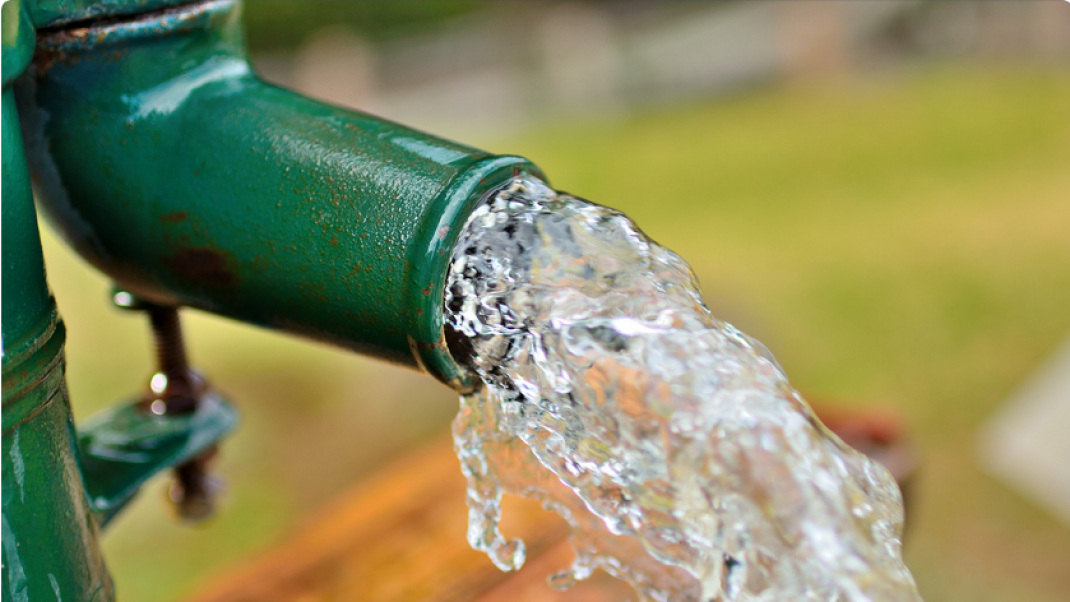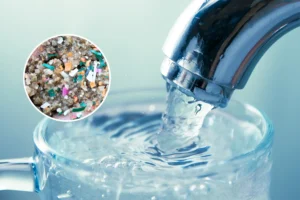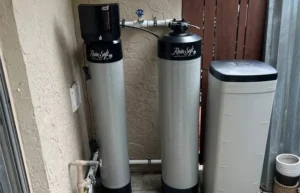If you rely on well water for your home, understanding the quality of your water is essential for both your health and the longevity of your plumbing systems. This guide covers everything you need to know about well water testing and why it’s crucial for safe and clean drinking water.
Well Water Basics
Well water comes from underground aquifers and is drawn up by a pump into your home. Because it’s sourced directly from the ground, well water is unfiltered and untreated compared to municipal water systems. This makes regular well water testing essential to ensure it’s free from impurities and safe for daily use.

What Is Well Water?
Well water is groundwater that has been tapped from an underground aquifer by digging or drilling a well. Unlike treated municipal water, well water can contain a variety of natural minerals and contaminants from the soil and rocks it passes through. Testing well water helps determine its quality and reveals whether any harmful contaminants are present.
How Are Wells Constructed?
Wells are typically constructed by drilling deep into the ground to access underground water sources. A pump is installed to bring water up from the aquifer. In most cases, a casing is placed around the walls of the well to prevent contamination from surface water and other impurities. The well cap is installed on top to protect against debris and pests.
Can You Drink Well Water?
Yes, you can drink well water, but only if it has been tested and deemed safe. Because well water doesn’t undergo the same treatment process as municipal water, it’s crucial to test for contaminants like bacteria, nitrates, and heavy metals, which can pose health risks.
Why Test Well Water?
Testing well water is vital for several reasons:
- Health Protection: Harmful contaminants in well water can lead to serious health issues. Regular testing detects bacteria, viruses, and chemicals that could otherwise go unnoticed.
- Improved Taste and Quality: Testing can reveal high levels of minerals or pollutants affecting the taste, smell, and clarity of your water.
- Protection of Plumbing: Hard water or water with high iron levels can corrode pipes and reduce the efficiency of water heaters and appliances.
Hard Water in Well Water
Hard water is a common issue in well water and refers to water with high levels of minerals like calcium and magnesium. Hard water can cause scale buildup in pipes, reducing water flow and efficiency. It can also leave residue on dishes, fixtures, and laundry.
- How to Test for Hard Water:
Hard water testing measures calcium and magnesium levels in your water. If your water tests high for these minerals, a water softener may be recommended.
Potential Impurities in Well Water
Due to its direct contact with soil and rock, well water can contain a variety of impurities:
- Bacteria and Viruses: Naturally occurring in the ground, these can pose health risks if not removed.
- Nitrates: Commonly found in agricultural areas due to fertilizers, they can be harmful, especially to infants.
- Heavy Metals: Arsenic, lead, and other heavy metals can leach into the water from surrounding rocks or plumbing materials.
- Volatile Organic Compounds (VOCs): These are chemicals from industrial pollution that can seep into groundwater.
Testing for these contaminants will reveal if your water requires a filtration system or other treatment to ensure safety.
How Often Should You Test Your Well Water?
It’s recommended to test your well water annually to check for bacteria, nitrates, and other contaminants. However, if you notice changes in taste, color, or odor, or if there are new pollutants in the surrounding area, additional testing may be necessary.
Professional Well Water Testing Services
Professional well water testing services provide a thorough analysis of your water, covering everything from hardness to bacteria and heavy metals. At Ohio Water Testing, we offer comprehensive testing services that ensure your well water is safe and clean for daily use.
Final Thoughts on Well Water Testing
Well water testing is crucial for maintaining a safe, reliable water supply. By understanding and monitoring the quality of your well water, you can protect your health, improve water quality, and extend the life of your plumbing. With regular testing, you’ll have peace of mind knowing that your well water is safe to drink and use.





